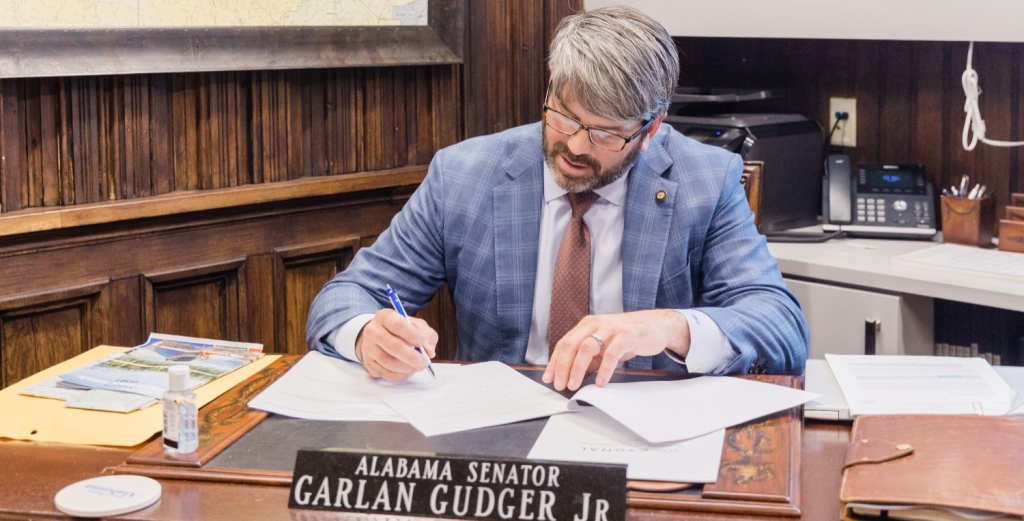Alabama’s prisons are a dangerous place to be. Alabama’s prison population sits at over 160% of its designed capacity, with a homicide rate nearly nine times the national average. In 2019, there were 14 homicides in state prisons. This does not include the number of suicides or drug overdoses, which are also high in the state’s prisons.
But thanks to Governor Kay Ivey, Alabama’s correctional system is undergoing a vital transformation. This is especially important as prisons across the U.S. continue to pose a high coronavirus risk. There have been no diagnosed cases of coronavirus in Alabama’s prisons yet, but the governor’s COVID-19 task force has been at work with the Alabama Department of Corrections on a proactive plan to stop the spread of the virus in prisons.
Furthermore, in January of this year, Governor Ivey convened a Study Group on Criminal Justice Policy, which is an example that other states struggling with prison violence and high crime rates should draw from. The Group is bringing an informed, thoughtful and research-based approach to modernizing Alabama’s justice system to create safer and more thriving communities than the way our country has approached incarceration in the past.
I commend the governor for the steps she is taking for Alabama’s future – both before and during the coronavirus pandemic. In February, Governor Ivey endorsed several justice reform initiatives that will increase safety in the state’s prisons and support rehabilitation efforts. The measures include a revision to the oath of office taken by correctional officers that emphasizes rehabilitation; increased funding for prison education and mental health services; a requirement for prisoners to undergo mandatory supervision before their release to reduce recidivism; and eligibility for revised sentences for nonviolent crimes.
Measures like these do not make our communities less safe; in fact, they do the opposite. With justice reform measures being taken in both the federal and state systems at unprecedented levels, violent crime has decreased 5% over the past three years. According to criminology experts, incarceration actually has a marginal impact on crime, especially violent crime; in some cases, research has shown that incarceration can actually increase crime. This has been referred to as “the prison paradox.”
What does decrease crime? Education. Substance abuse services. Mental health services. Employment assistance. All of these have been proven to lower recidivism and crime. Since 2007, more than 30 states have passed reforms that address these issues and prioritize prison beds for serious offenders. Indeed, if smart and measured approaches recommended by the Study Group on Criminal Justice Policy are adopted by the legislature, Alabama can see its crime rates drop, its overall prison population drop, and its state prison budget drop.
Justice reform is one of the rare issues that is receiving bipartisan support – not just in Alabama but across the country. America’s high incarceration rate – the highest in the world – takes a massive human toll on families, individuals and communities. But increasingly, leaders like President Trump on the federal level and Governor Ivey on the state level are proving that you can be both “tough on crime” and “smart on crime” at the same time.
Moreover, the goals of justice reform measures are consistent with faith-based values. These values balance personal responsibility with forgiveness, compassion and mercy. This is an issue that can’t wait for attention. It’s also an issue that will allow us to pull together at a time when we face an unprecedented “invisible enemy” in the coronavirus, when we are divided by political partisanship and are facing an uncertain economic future. In this time of anxiety for vulnerable family, friends and loved ones, Governor Ivey is taking the necessary steps to bring change to Alabama’s justice system. I support Attorney General Barr’s recent order to the federal Bureau of Prisons to grant home confinement to many sick and elderly inmates during the coronavirus, and hope similar steps are taken in state and local prisons across the country. And I urge Alabamans not to forget about the incarcerated as they consider the future of their communities and their country.
Timothy Head is the executive director for the Faith & Freedom Coalition, a national grassroots movement of over 2 million conservatives and people of faith in support of time-honored values, stronger families, and individual freedom.











